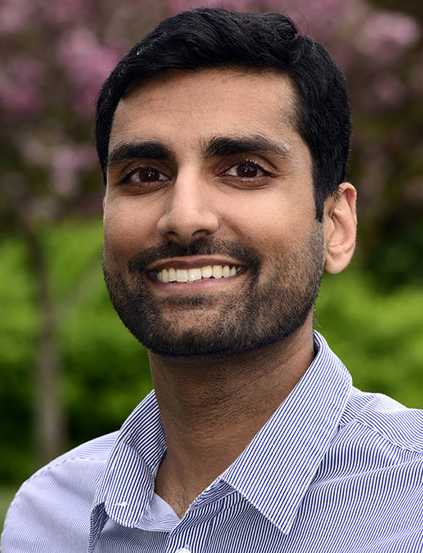Suril Mehta, DrPH ’20, MPH ‘09, BA ‘07, is one busy public health professional. Since January 2023, Mehta has been on temporary assignment at the Council on Environmental Quality (CEQ), a component of the Executive Office of the President, serving as Senior Advisor for Chemical Safety. “Among other things, I help advise the chair of CEQ on critical chemical safety issues and policies,” he says. In this work, Mehta has been lending his collective federal government and public health expertise, and his experience addressing the importance of health protection and science-based policy-making.
An environmental epidemiologist, Mehta is on loan from the National Institute of Environmental Health Sciences (NIEHS) at the National Institutes of Health (NIH), in the Integrative Health Assessments Branch of the Division of Translational Toxicology. There, he works in the Report on Carcinogens Group which assesses substances that may pose carcinogenic hazards to people in the United States. “We consider the totality of health evidence from epidemiology information to animal toxicology studies to mechanistic data,” Mehta explains. “From there, we use an evidence integration approach and established listing criteria to determine if a substance can be listed as a known or reasonably anticipated human carcinogen in the U.S. Report on Carcinogens, a congressionally mandated, science-based public health document, which then is used by others to inform public health decision-making.” Mehta’s portfolio at NIEHS includes improving methods for systematic review and for impacts assessments, and research on the carcinogenicity of flame retardant chemicals and wood smoke.
And that’s not all. Mehta, who earned his Doctor of Public Health (DrPH) degree from GW’s Milken Institute School of Public Health (SPH) in the Department of Environmental and Occupational Health, is also course director for Introduction to Environmental and Occupational Epidemiology, a graduate-level elective offered online twice a year at Milken Institute SPH. “At Milken, we cover fundamental concepts of applying epidemiology to environmental and occupational exposures,” he says.
Mehta welcomes the opportunity to give back to the department that he credits with “preparing me for the critical intersection I live in, both in my current work at CEQ as well as my NIH position, which is to understand underlying research and then translate that research into actionable conclusions or recommendations that can inform key policy decisions. The DrPH program merged science and public health leadership in ways that have really benefited me.”
At Milken Institute SPH, “you will learn from world-class faculty not only in their research expertise, but also in their experiential knowledge,” he continues. “They’ve served all over in senior leadership positions at major agencies. Learning from those experiences was invaluable in helping me become a better public health practitioner.
“I am very passionate about the work that I do because I know that it matters to the health of this nation and to the world,” he concludes. “I understand the responsibility of what I do, and I don’t take it lightly. I’m proud of my work, and the principles I apply to show the value of good science at the forefront of protecting public health.”


